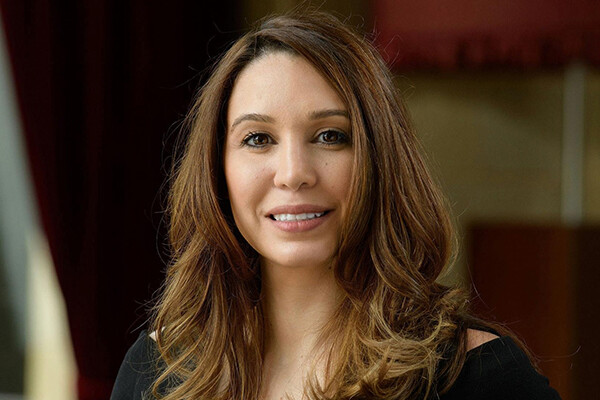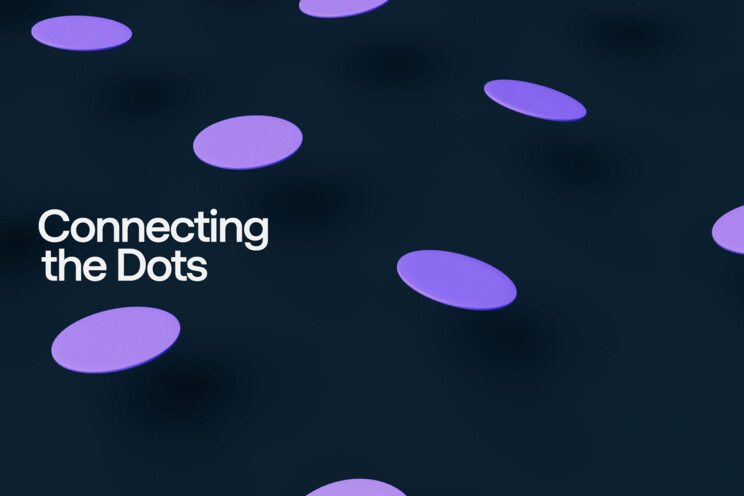
This blog series celebrates the remarkable women leaders who play a pivotal role in shaping Securitas into the company it is today. As part of this series, we're shining a light on the women who are breaking barriers and leading the way across our organization. Through their stories and professional journeys, you can gain valuable insights into life at Securitas, learn from their experiences, and uncover the tips and lessons they've gained along the way.
In this edition, meet Helena Andreas, SVP Group Communications & People. Helena is an adaptive leader who has a coaching leadership approach to make her team feel confident and independent to deliver on their own – while she is still available to support when they need guidance.
Helena has been with Securitas since February 2019. Before joining, she was head of Group Marketing & Communications at Nordea, and prior to this held several senior positions with Vodafone and Tesco in London between 2005 and 2014. Helena also previously served as a consultant at Accenture in Stockholm. She has a master’s degree in engineering physics from Lund University and an MBA from INSEAD France/Singapore.
Q&A with Helena Andreas
What led you into the security industry?
To be honest, I never thought about the security industry. When someone first suggested it to me, my first thought was this stereotype: the big, burly, scary-looking guy standing around. But then I reflected, I spoke to some people, and I realized that’s not what security’s about at all. It is about the very human need of safety and helping people, companies, communities feel safe. And that is something that I find very inspiring. And, in particular, as the world continues to develop, become more volatile, more polarized, this need for safety and security is just even more important.
With that said, I probably wouldn’t want to work for any other company than Securitas. It’s our values of integrity, vigilance, and helpfulness that really speak to me.
What is your vision for the company and how do you wish to influence a change in the next generation?
I find our purpose – we help make your world a safer place – very inspiring and I firmly believe in our strategic direction to become a security solutions partner with world-leading technology and expertise. With our clients’ best interests at heart, and their trust, we can really help them out so they can focus on what they do best, which is their own business.
But if I can be even bolder, I would wish that whenever someone, anywhere in the world, mentioned the word “safety,” the listeners would immediately think of Securitas and our three red dots. That would mean that we’d need to broaden the definition of security even further, to include also physical and mental health, environment, digital, and so on – wouldn’t that be cool?
Describe your leadership style.
I think that the best leaders are adaptable and adjust their style to suit the people they are speaking to, in terms of both who they are and what the situation is. One of the most helpful trainings I ever did, a long time ago, was about situational leadership. The most memorable insight for me then was that someone who is usually very confident and happy to work independently and use their leader more as a coach, could be in a situation which is very new for them and in that context need a much more directional or hands-on leadership style. So essentially, you always need to be very aware of the other person’s perspective and context, and tailor your communication accordingly.
Still, everyone has a preferred style and mine is a coaching style of leadership, which is what I personally enjoy the most. By that, I mean that we together, based on the objectives of the company, department, or individual, set goals and establish a framework of operation, and it is up to the individual to decide on the specifics, set plans, etc. I’m available as a sounding board or to give input at certain points. Then, activities become teamwork, which we do together to reach a common goal, which is much more fun. It also encourages people to try things they haven’t done before, and that it is important to develop. Whatever team I have led, I have always felt that the true proof of success is when I’m not needed anymore, because the team is so good and confident that they can comfortably deliver on the business objectives on their own.
How can the security industry become more inclusive for women leaders?
I truly wish there was one simple answer to this question! There are so many things we, like many other companies, need to do to be truly inclusive and enable everyone to be their best selves. I do think that the most important starting point is with ourselves though. If each and every one of us regularly ask ourselves the question, “Although this person is different from me and does the job differently from how I would have done it, does that mean that it isn’t as good? Or could it even be better?” we can break down our own barriers of preconceptions, overcome our instinctive fear of the unknown, and over time change the demographic composition of our colleagues and leaders.
How do you help other women to lead? What would you say is the responsibility of women in leadership positions?
The responsibility of a leader is the same no matter your gender, or any other personal characteristic: it is about helping others to grow, and to challenge their own comfort zone to become the best they can be. That said, in most places there is a predominant culture and a certain expectation of how a leader should behave, which is a result of business leaders historically having been a fairly homogenous group. Anyone with different personal characteristics, for example gender, has a responsibility to help challenge that stereotype and demonstrate that there are many ways to lead just as well – or maybe even better.
Of course, personally I can relate to many experiences of women in male-dominated environments and do my best to mentor and offer advice when it can be useful. Often, all someone needs is a bit of a confidence boost, or even push, to dare to take on a new challenge and then end up doing extremely well.
Do leaders need a role model? Who is/was yours?
Role models are important for everyone, both personally and professionally. I don’t have a specific one but try to take inspiration from many different people who I find do different things really well. Actually, I think I may have learned even more from anti-role models – that is, the experience working with or for someone whose behavior I really didn’t like, has been a good reminder for me in many situations so I have (hopefully!) been able to avoid making the same mistakes.





